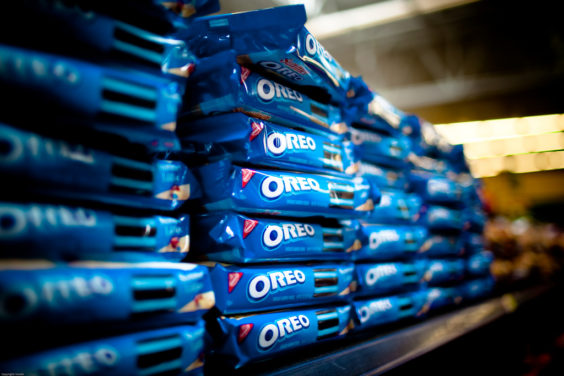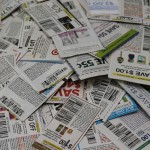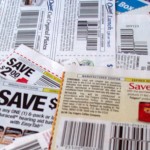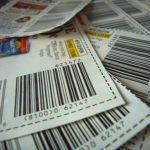
It’s something we’ve all heard, about the best way to stick to a healthy diet: don’t shop when you’re hungry. A new study shows there’s some truth to that. Throw coupons into the mix, and shopping while hungry could be even more hazardous to your health.
The study, “Fattening Fasting: Hungry Grocery Shoppers Buy More Calories, Not More Food“, appears in the latest issue of JAMA Internal Medicine. As the title suggests, the researchers found that hungry shoppers don’t tend to buy more food – they just opt for worse food. In a lab study, groups of shoppers who hadn’t eaten for at least five hours were asked to take a virtual shopping trip in a “simulated online grocery store”. Half of the group was first given a plate of Wheat Thins and told to eat until they were full. The other half got nothing.
Turns out the hungry shoppers chose more higher-calorie products than those who stuffed themselves with crackers first. “Fasting has been shown to increase brain reactivity to particular types of food over others,” the researchers write. “Fasting participants showed increased activation in brain areas associated with reward.”
A field study at an actual grocery store followed. This time, instead of offering or withholding food, the researchers made assumptions based on the time of day the shoppers shopped. Those who shopped at what the researchers determined were the “lower-hunger, after-lunch hours” of 1-4pm chose healthier food than those who shopped at the “higher hunger hours” of 4-7pm.
As with any study, the methods may raise questions about the results. Did the fact that the non-hungry shoppers were given Wheat Thins subliminally predispose them to choose healthier food, than if they were given, say, a plateful of Oreos? Did the researchers assume too much, in declaring the afternoon shoppers to be full and the evening shoppers to be hungry?
Possibly. Either way, though, health professionals say the results are just common sense. “The body is always trying to defend its state and it makes very logical sense that if you’re going for a period without food, and you’re wanting food, you’re more likely to go for the food that’s high-calorie,” endocrinologist Tony Goldstonehe told Reuters. “If we’re needing energy, we’re not going to go out for lettuce.”
The study’s findings also hint at a current debate that’s playing out in a number of states – should those who are receiving government assistance to buy food, be allowed to use it for junk food? Several states are considering legislation to ban it, calling it a waste of public money. But some nutritionists argue that such choices make scientific sense. “It’s not surprising to me that when you’re hungry, you’re going to choose foods of low nutritional quality,” nutritionist Amy Yaroch told Reuters. Not knowing when you’ll have food available, she said, means that you’ll choose higher-calorie options when you do.
How do coupons play into all this? Well, they weren’t part of the study. In fact, products in the lab test didn’t even have prices listed, so the participants weren’t swayed by what was on sale or what they had coupons for.
In one sense, couponers have an advantage. If you sort your coupons ahead of a shopping trip and prepare a list, you’re less likely to make unhealthy choices. Because shopping with a list, nutritionists advise, is key. “Don’t go shopping when you’re hungry and you don’t have a list, because you’re just going to buy all sorts of junk food,” Yaroch told Reuters.
On the other hand, we all know how many coupons there are for junk food. According to a Kantar Media study of coupons released last year (read: “2012: A Good Year For Coupons. 2013: Even Better?”), there was only one type of food among the top ten categories of coupons offered: “Snacks”. At number four on the list, right behind personal care items, pet food and household cleaning products, there were a total of 10.8 billion coupons for snack foods distributed in 2012.
So there are plenty of temptations for couponers. The key thing to avoid, then, may not just be shopping while hungry – but planning your shopping trip while hungry. If you sit down to look at your grocery store’s new ad, see that cookies are on sale, you have a coupon, and you haven’t eaten yet, you may be more tempted to sneak it onto your list (“for the kids”) than if you’re not hungry.
To add to that tried-and-true advice, then – don’t shop while you’re hungry, and don’t plan to shop while you’re hungry either. Your budget, and your waistline, will thank you for it.















